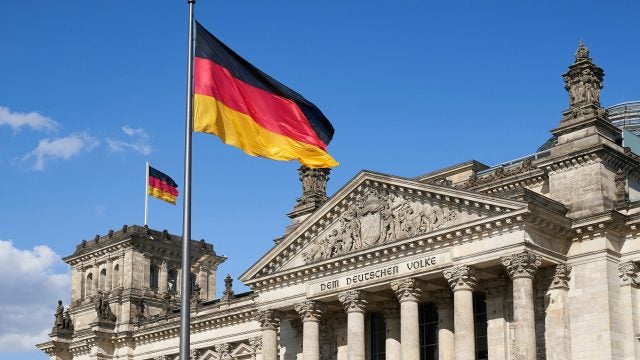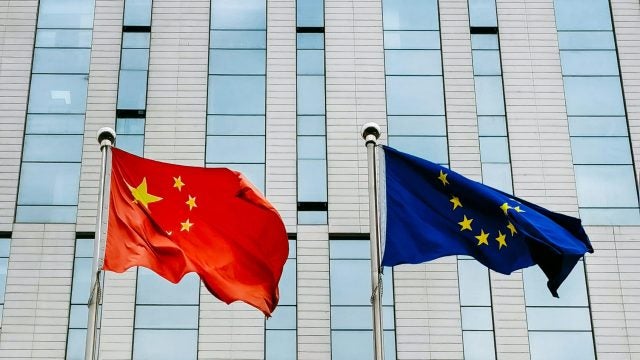Title: Argentina’s New Media Regulations Create Jitters over Information Control
Argentina’s new government is faltering. The country was on its knees prior to the pandemic, mired in a multiyear recession and debt crisis. Today, it is a COVID-19 hot spot, and its economy is suffering a double-digit contraction. Predictably, these maladies have undermined confidence in President Alberto Fernández, whose approval rating has fallen precipitously after a surge in support earlier this year. His response, increasing state control over the economy, is unnerving critics, as exemplified by the reaction to his executive order expanding the government’s role in the telecommunications sector.
Stop the Presses
A price freeze for telephone, cable, and Internet services in Argentina has raised concerns that the new government is increasing control over communications technology. President Alberto Fernández designated these businesses as “public services” by executive order, bypassing the country’s divided congress. Among his targets was Grupo Clarín, the powerful media conglomerate that clashed bitterly with the government the last time Argentina was ruled by Peronists, a chameleon political movement that also includes center-left figures such as Argentina’s current president. These regulations are a cause for worry not only for Grupo Clarín, but also for the broader industry, in light of other measures concentrating state control over South America’s second-largest economy. There is ample evidence of a more interventionist approach to economic policy by the new Argentine leadership. Still, it is premature to sound alarms over press freedom or the health of Argentine democracy.
Fernández’s executive order, known as a Decreto de Necesidad y Urgencia (“Decree of Necessity and Urgency”), surprised and unnerved government critics. Issued in August, it not only prohibited price hikes for telecommunications services but also opened the door to broader interventions, such as future price controls, nationalizations, or the introduction of state-owned competitors. Internet service providers and mobile phone companies, including Telecentro, Telecom, and Telefónica, howled in protest, warning the aggressive regulatory maneuver would discourage investment and set the stage for expropriations. The price freeze also imperils the financial health of telecommunications businesses already struggling to keep up with the country’s high inflation. “Confidence and predictability are essential conditions to create jobs and attract investment,” the influential Instituto para el Desarrollo Empresarial de la Argentina said in a statement.
Statists Strike Back
These private sector fears are not far-fetched. Fernández is also promoting a judicial reform that would likely involve court packing and reduced oversight over public corruption. In April, he announced a “cyber patrol” to monitor social media, earning condemnation from Amnesty International for using the pandemic as “an excuse to exercise massive, indiscriminate surveillance” over journalists and the broader population. Two months before his telecommunications edict, he attempted to seize Vicentin, one of the country’s top grain companies. The act drew unflattering comparisons to his vice president, Cristina Fernández de Kirchner, whose 2007-2015 presidential tenure included the takeover of private pension funds, an oil company, an airline, and even soccer broadcasting rights. She is now vice president, but that is a mere technicality for her critics: Fernández de Kirchner has “kidnapped Peronism,” said Argentina’s last president, the center-right Mauricio Macri. As a result, he warned, Argentina “doesn’t respect its constitution and doesn’t respect its institutions.”
For his part, Fernández described the telecommunications reforms as a defense of free expression, emphasizing the importance of expanding Internet access. That is a reasonable proposition, especially during a pandemic that has marooned schoolchildren in their homes. (Industry groups say Argentina already has relatively high broadband access: seventy-six percent of Argentines use the Internet, compared to sixty-seven percent across the Americas, according to the International Telecommunication Union.) The government also justified its reforms as motivated by consumer protection, especially amidst an economic crisis that began prior to COVID-19. Argentina registered two straight years of recession, double-digit inflation, and rising poverty before the coronavirus arrived. This year, GDP will collapse by twelve percent, according to the International Monetary Fund.
Still, given Fernández de Kirchner’s rising influence over the administration, the historical enmity between Grupo Clarín and her, and her combative approach to the political opposition, it is easy to assume the worst about the telecommunications reforms. Her increasing sway is indisputable. The vice president’s fingerprints were on the attempted Vicentin takeover and the proposed judicial reforms. Fernández de Kirchner hand-picked her party’s presidential candidate and even announced his candidacy last year. In early December, she released her assessment of his first year in office in a public letter that failed even to mention his name. Today, twenty-six percent of Argentines say she is actually running the government, according to the pollster Poliarquía.
Opposition Fears
Fernández de Kirchner’s increasing power has raised concerns that Argentina’s government will show decreasing tolerance for dissent. In 2008, Fernández de Kirchner, then president, declared war on Grupo Clarín and its rival, the broadsheet La Nación. Her administration represented the bare-knuckled, far-left wing of the Peronist Party. Under the slogan “Clarín Miente” (“Clarín Lies”), she pioneered the now- common technique of dismissing negative coverage as “fake news.” She also promoted legislation to compel Grupo Clarín to sell many of its holdings and weaponized Argentina’s tax authorities against the company. As the conflict between her government and the news media escalated, she even accused one of Grupo Clarín’s owners of adopting infants kidnapped from political prisoners by Argentina’s “Dirty War” dictatorship. Recently, Peronist Senator Oscar Parrilli, a close ally of Fernández de Kirchner who served as her intelligence chief, assailed the Argentine news media and called for reviving the controversial media law discarded by Argentina’s last government. His remarks further unnerved journalists, already on edge over the new media regulations.
After President Fernández’s election in October 2019, the Inter-American Press Association urged him “not to go back in time” in reproducing his vice president’s previous policies. Generally speaking, Fernández is more pragmatic than his predecessor, including his approach to the press. As chief of staff to former President Néstor Kirchner (2003-2007), the vice president’s late husband, Fernández served as an effective emissary to Grupo Clarín; during those years, the company was regarded as sympathetic to the government. The warfare between the Peronists and Argentina’s news media did not start until after Néstor Kirchner left office and was succeeded by the first lady. But President Fernández is no longer negotiating with media executives as an experienced behind-the-scenes operator, but rather as the target of often critical coverage. Moreover, sluggish poll numbers often make leaders prickly about bad press, and this year, Fernández’s popularity plummeted as coronavirus cases skyrocketed. The country’s mortality rate (91 deaths per 100,000 people) is the fourth highest globally, and public approval of his handling of the pandemic has dropped to forty-three percent from eighty-four percent in April, according to Poliarquía. Argentines are increasingly pessimistic about their government’s ability to restore economic growth. As the October 2021 midterms approach, the country’s leaders are facing growing criticism and public protest.
Regional trends of conflictive government-media relations also fuel concern over Fernández’s concentration of power. Throughout Latin America, leaders are utilizing the public health and economic crises to clamp down on the news media and portray journalists as “part of the opposition,” according to Edison Lanza, the special rapporteur for freedom of expression at the Inter-American Commission on Human Rights. In Bolivia, the former interim president, Jeanine Áñez, signed an executive order threatening prison for “disinforming.” In Nicaragua, lawmakers approved a proposal from strongman Daniel Ortega requiring journalists reporting for international outlets to register as foreign agents. Like Argentina, Nicaragua is patrolling cyberspace under the guise of combating the “infodemic” of misinformation on the pandemic. In both countries, rights groups say the motives are impure, raising fears that governments are policing public and private speech for political purposes. Government surveillance of online activity threatens free expression and privacy and risks self-censorship by government critics, Amnesty’s Argentina director, Mariela Belski, warned Argentina’s security minister in April. This regional crackdown on communications is a symptom of broader democratic backsliding in Latin America, where three countries—Cuba, Nicaragua, and Venezuela—are now considered “not free” by Freedom House. Support for democracy in the region fell from sixty-one percent in 2010 to forty-eight percent in 2018, according to pollster Latinobarómetro. In Argentina, only fifty-eight percent of respondents expressed support for democracy, down from seventy-three percent in 2013.
Argentina’s Surprising Resilience
Despite the economic tumult in Argentina and regional democratic backsliding, however, Argentina’s democracy is still robust. From 2001 to 2002, during Argentina’s last debt and currency crisis, the country had five presidents in a two-week span, but its military stayed on the sidelines. In 2019, Macri became the first non-Peronist to finish his term since the end of the “Dirty War” dictatorship in 1983. Despite bitter partisanship, last year’s election was conducted smoothly. After the opposition’s victory, Macri immediately recognized the results, met with Fernández, and attended his inauguration. Meanwhile, Fernández de Kirchner, though increasingly powerful, is far less influential now than at the peak of her presidency. And even at her peak, despite having a friendlier congress, a higher approval rating, and the presidential sash, she never truly threatened Argentina’s democracy. Grupo Clarín, for example, largely held off regulators for years until Macri threw out Fernández de Kirchner’s controversial media rules.
In light of Argentina’s stable democracy, it is not necessary to see every new regulation in the most sinister light, including Fernández’s new telecommunications rules. Undoubtedly, Peronists favor a stronger role for the government in public life, but the president is not trampling institutions or impervious to public opinion. During the failed Vicentin takeover, the production minister, Matías Kulfas, said the government had a “new statist vision” for Argentina. However, after a fierce backlash and court challenges, Fernández abandoned the expropriation attempt, and he has so far not attempted a sequel.
For now, worries about the durability of Argentina’s democracy are premature. Fernández’s fiercest critics say Argentina increasingly resembles Venezuela, a far-fetched comparison without repression of dissent or the free press, torture or extrajudicial killings, or marauding pro-government militias. Although Argentina’s courts are imperfect, they are still independent. For evidence, look no further than the opposition’s bête noire, Fernández de Kirchner. Even amid deepening anxiety over President Fernández’s concentration of power, his vice president remains a criminal defendant in several corruption investigations, including allegations she accepted bribes in exchange for public works contracts. Her recent public letter underlined her influence and ominously assailed the supreme court, but it also highlighted her inability to bend Argentina’s institutions to her will or silence her critics, including Argentina’s journalists. While Fernández’s reforms portend uncertain consequences for Argentina’s communications industry, they do not signal serious democratic backsliding.
. . ,
Benjamin N. Gedan, PhD, is the deputy director of the Latin American Program at the Woodrow Wilson International Center for Scholars, an adjunct lecturer at the Johns Hopkins University School of Advanced International Studies, and a former South America director on the National Security Council staff in the White House during the Obama administration.
Recommended Articles

This article contends that South Africa’s 2025 G20 presidency presents a critical opening to shape governance of critical mineral supply chains, essential for renewable energy, digital economies, and national…

Germany’s economy is being throttled by a more competitive China that has usurped its previous manufacturing dominance in many industries. In response, Germany has doubled down on the China bet…

In 2021, the European Union (EU) attempted to assert itself in the Indo-Pacific arena to increase its geopolitical relevance by releasing an ambitious and multifaceted Indo-Pacific Strategy. However, findings from…